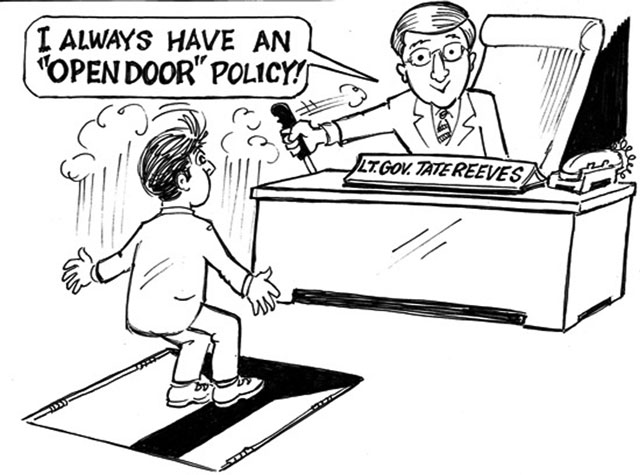Why have Vietnam Tra and Basa fish products unceasingly been subject to anti-dumping duties? Is it because the US has not recognized Vietnam as a market economy or is it the fate developing countries, including Vietnam, must accept when joining in the free-trade playground in which the US overwhelms?.
Vietnam’s Tra fish sector has experienced vicissitudes and difficulties in more than a decade of its development. Vietnam was exporting catfish even before 1995. The value of exports has been increasing at an amazing rate since mid-1999 as the products were favored thanks to its tasty and low prices, and tariffs dropped to zero.
Tra fish are cheap because Vietnam has the advantage of cheap labour and other inputs. Raising fish in water flows has the dual advantages of, first, producing more tasty fish and, second, costing lower rates compared to American catfish which uses more expensive groundwater. The Catfish Farmers American (CFA) has teamed together to “overthrow” Vietnam’s Tra fish. Ironically, the American Congress believed their farmers have some intrinsic right to the name catfish that is ranked above the rights of Vietnamese catfish farmers. But in a world where bigger fish swallows smaller ones, it is not surprising that Vietnamese farmers are forced to swallow this piece of protectionism and hope for the best.

Anti-dumping duties are counted as the final and most preposterous resort of the US. Historically, Vietnam will be in disadvantageous and difficult position to prove that it has shifted to a market economy. Therefore, the CFA exploited this loophole to deliberately bring out justifications proving that Vietnam is a non-market economy.
After the CFA and many catfish farming households in the US sent in their complaints, the US Department of Commerce (DOC) decided to treat Vietnam as a non-market economy since January 7, 2001. After determined petitioning by CFA and individual American catfish farmers, the Department of Commerce’s import administration determined on November 2002 that Vietnam was to be treated as a non-market economy effective from July 1, 2001. The DOC chose to pick India and Bangladesh as surrogate economies for comparing catfish prices. The DOC found the price levels in these countries much higher than Vietnam levels. Vietnam’s relevant agencies rejected drastically the DOC’s irrational decision but no one closes the loophole by successfully proving Vietnam is a market economy. Hence, Vietnam’s Tra fish products have not been able to escape from the applycation of anti-dumping duties.
The issue has affected the very poor catfish farmers of Vietnam in the Mekong Delta and may later affect the whole country. Fish farmers in Vietnam are generally poor and operate on a very small scale whereas their US collegues are wealthy and have large plantations. Many poor farmers had already mortgaged their land for buying fish cages. What wealthy farmers in a powerful US are trying to protect their industry with weaker competitiveness prove how farcically the US government prides itself on pushing trade openness. The farce has unfairly robbed Vietnam’s seafood farmers of the opportunity to pay out their debts and make a decent living on the basis of hard work. It is ironical that such protectionism still exists in the US whereas the country is a very power that has been intent on prizing open developing economies to free trade. The US has clearly shown that free trade for the powerful is the freedom to use every backdoor tactic to ensure that trade is protected according to the dictates of their own interests.
Ranja sengupta
Senior Researcher – Third World Network
|
>> Andrew Schroth US Law firm Grunfel, Desiderio, Lebowitz Silverman & Klestadt LLP Neither Vietnam nor the industry provided any factual or legal arguments to either the DOC or ITC that the dumping should be revoked. So, it is difficult to file a suit on the issue to the World Trade Organization. Further, neither Vietnam nor the individual companies can appeal this decision to the U.S. Court of International Trade (CIT) in New York as they failed to avail of or exhaust their administrative remedies before the DOC and ITC. I am afraid this case will now move forward against Vietnam for another five years. When Vietnam joined the WTO, it agreed to be treated as a “non – market economy” (NME) in trade remedy actions brought by the U.S. This means that the US DOC will not accept actual prices or costs of Vietnamese products in antidumping cases. As such, the US DOC uses a complex methodology called “surrogate values” in which it will find a market economy country that it concludes is economically comparable to Vietnam. DOC typically chooses India, Bangladesh, Indonesia as the surrogate country. This methodology of course is subjective and the prices of major inputs can vary dramatically, leading to very unpredictable results. With changes in surrogate countries and surrogate values it is thus very difficult for Vietnamese companies and industries to rid themselves of the specter of antidumping duties no matter how carefully they monitor export prices to the US. |